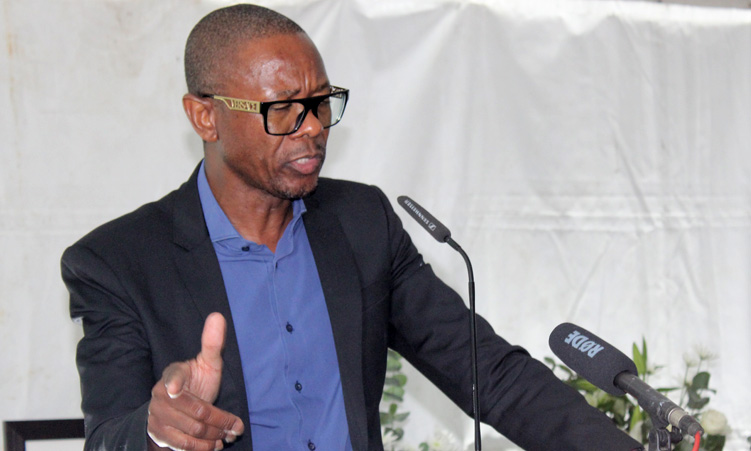President Hage Geingob’s lawyer, Sisa Namandje, has described Geingob as a distinguished freedom fighter, a liberation icon, and a public servant of exceptional skill.
Namandje said this at a memorial service at Geingob’s house in Windhoek on Tuesday.
Geingob died in Windhoek on Sunday.
He was 82.
In his statement, Namandje lauded Geingob’s contributions to Namibia’s constitutional democracy, peace, unity and reconciliation.
He emphasised Geingob’s role in crafting the Namibian Constitution.
“Hage’s legacy of constitutional democracy, peace, unity and reconciliation – seen in action through the constitutional and statutory systems, institutions and processes he helped establish – is evident from our constitutional preamble (he crafted), among other to the effect that our nation, having emerged victorious in its struggle against colonialism, racism and apartheid, must strengthen its resolve not only to cherish, but also to protect the gains of our long struggle for independence,” Namandje said.
He highlighted Geingob’s commitment to dismantling apartheid-era laws and institutions, promoting gender equality, and ensuring equal rights for all Namibians.
Namandje said Geingob also hated tribalism.
“In fact, he was tribal-neutral. He hated and abhorred those who engaged and actually traded in ‘tribal arrogance’ and ‘dominance’ just as he hated those who used ‘tribal victimisation’ for cheap political theatrics,” Namandje said.
He said Geingob wanted a nation in which its sons and daughters relate to one another without tribal impediments or consideration – for the unity of purpose and harmonious coexistence.
“He said this until a few days before his departure,” Namandje said.
According to Namandje, those who knew Geingob know that he could never have failed to ensure that the Namibian Constitution reminds members of the executive to remain vigilant to ensure that the scourges of apartheid, tribalism and colonialism do not again manifest themselves in any form in a free and independent Namibia.
Namandje acknowledged the challenges Geingob faced in his pursuit of national goals and emphasised the president’s relentless efforts to achieve prosperity for all Namibians.
He also praised Geingob for leaving behind a “prepared nation” and a “dynamic Constitution” that guides the country towards a brighter future.
Namandje said to avoid lawlessness, anarchy and a rule of law-related crisis, Geingob ensured that at independence there was a temporary preservation of laws that were in force immediately before independence, with a qualification that such laws would remain in force until repealed or amended by an act of parliament, or until they are declared unconstitutional by a competent court.
“Hundreds of these bad laws have since been removed from our statute books. Geingob drove this as both prime minister and president,” Namandje said.
He cited examples of this, such as women still being perceived as property at independence in 1990.
Namandje said this is so because of the discredited concept of ‘marital power’ of and by husbands over their wives.
There was also discrimination in the enforcement of laws in criminal cases such as rape, and various laws excluded the majority of the population, particularly black people, from certain benefits.
Namandje said by the time Geingob completed his first term as the prime minister in 2002, hundreds of constitution-aligned pieces of legislation for the benefit of Namibian people had been put into force.
“This area of Geingob’s achievements is usually ignored and underrated. To me it is one of his biggest achievements in our quest as a nation to dismantle the shameful legacy of apartheid and colonialism in our country,” he said.
The Institute for Public Policy Research (IPPR) also expressed deep sorrow following Geingob’s death.
In a message of condolence, IPPR board chairperson Monica Koep said Geingob’s legacy begins in 1989, when he played a pivotal role as the chairperson of the Constituent Assembly.
“We simply would not be the nation we are without his hugely positive influence,” she said.
Koep said Geingob leaves Namibia as an open democracy with freedom of expression and space for civil society to thrive in.
“This is a tremendous legacy,” she said.
Stay informed with The Namibian – your source for credible journalism. Get in-depth reporting and opinions for
only N$85 a month. Invest in journalism, invest in democracy –
Subscribe Now!







